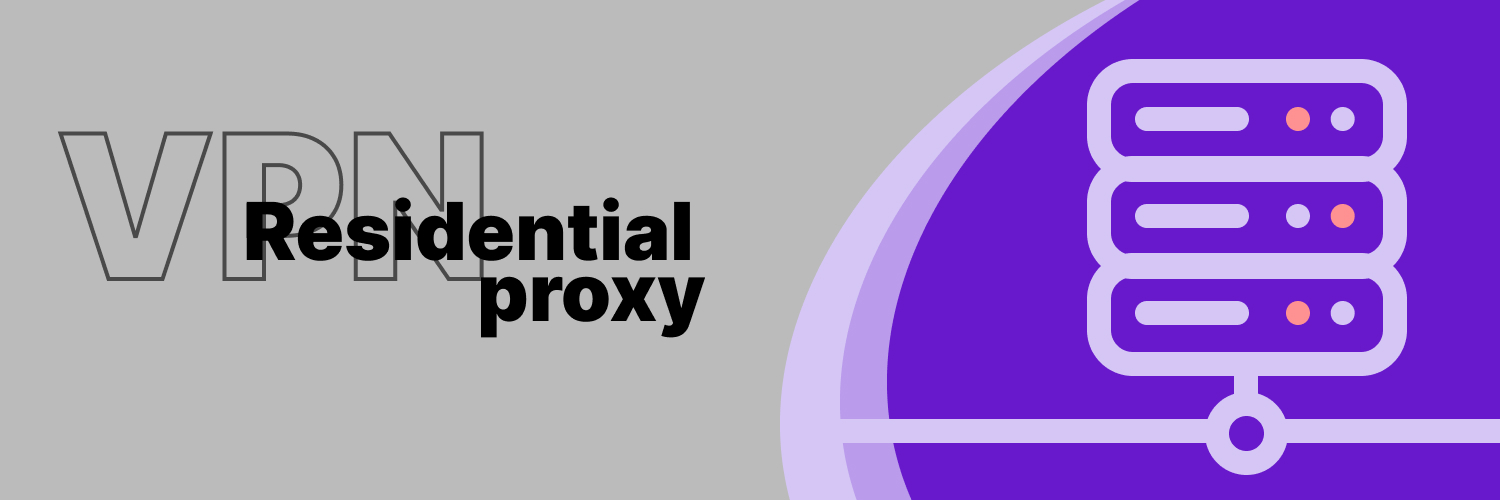Residential proxies and VPNs provide users with privacy and security when they are connected to the internet and accessing websites, but they do this differently. We want to help you recognize the differences when thinking about and comparing a VPN vs residential proxy.
Table of Contents
People spend so much time on the internet every day. Knowing how to protect themselves and their data should be information everyone has. That’s why this article will look into both of these options for privacy and security, help you learn about the differences and similarities between the two, and when to choose either option.
What Is A Residential Proxy?

A residential proxy is part of a proxy network that contains an assortment of real IP addresses which are provided by an Internet Service Providers (ISP). These IP addresses are all bound to physical locations around the world. It acts as a gateway between the user and the websites being accessed.
People that use residential proxies to connect to the internet and access websites are seen as legitimate users by websites. Unlike Data Center and ISP proxies that are quickly identified and blocked as their IP addresses are easily recognized as not belonging to a person.
What Is A VPN?

VPN stands for ‘Virtual Private Network’ and it helps to create a secure network connection between the user and public networks. Using a VPN will encrypt your internet traffic and disguise your identity when you are online.
A VPN will make it harder for third parties to track what you do on the internet and steal your data. It will do this by hiding your IP address and redirecting your network through a secure remote server that is hosted by the VPN provider whose service you are using.
Similarities And Differences Between A VPN And Proxy

Proxies and VPNs will both give you more security when connecting to public networks and using the internet. The differences between these two methods of adding security and privacy will now be looked at to help you determine which one you should use.
-
Security
A proxy server will hide your identity from websites and the public networks that you connect to. Depending on the proxy you use, encryption can be set up to add more security. VPNs can hide your identity from the websites you access as well, and they’ll encrypt the data before it is sent to make the connection secure. You will need to choose a trusted VPN provider to guarantee your data will be safe and your identity is hidden.
-
Speed
If you need faster internet speeds, then a residential proxy could give you just that. You will need to make certain the proxy you are using doesn’t have many people on it at the same time. Your choice in proxy server is vital for faster speeds. A proxy server closer to the location of the website’s servers will give you faster internet speeds and minimize any delays.
Using residential VPN services can slow down your internet speed if the wrong server is used. If the server is located far from the user and website’s servers, then it will take a longer amount of time to access websites and use the internet. Connections speeds are affected by the VPN provider as well, so users need to make the correct decision.
-
Privacy
Both methods can enhance the level of privacy you have, but they’ll do this differently. A proxy will act as an intermediary between the user and the websites they access, the websites will not know the IP address of the user as it will be hidden.
A VPN will hide the user’s IP address from the website as well, giving them enhanced privacy. They will help encrypt the data being sent and received, which isn’t offered by a residential proxy. If this is what you need, then you know what choice to make.
Use Cases For VPNs And Proxies

VPNs are typically used more by individuals when they are using the internet and proxies are used by businesses. This is the case every time, and both have their uses in individual and business settings. Knowing the use cases is a good way to determine which one you need.
Virtual Private Network (VPN)

-
Stopping ISP Throttling
Internet Service Providers (ISPs) control the amount of bandwidth and internet speed a person can use. ISPs can throttle the service they give you if they want to, and this can make your connection to the internet slower. Using a residential VPN hides your internet traffic from the ISP, making it difficult for them to find a reason to throttle your internet connection.
-
Stopping Data Collection
When using the internet, websites collect information about you and what you did while accessing the website. This data is used by companies to advertise what they think you want to see. This is intrusive, and a residential IP VPN can help stop this from happening.
-
Secure Internet Connection
Browsing the internet can leave you vulnerable to cyber attacks and your data could be stolen. The encryption that VPNs have will stop this, making your browsing and data secure.
Residential Proxies

-
Data Collection
If you need to collect data from the internet, then you’ll need to use a residential proxy. This will prevent anti web scraping and data collection systems from blocking your IP address and stopping you.
-
Search Engine Optimization (SEO)
Residential proxies can be used for SEO to help the performance of the user’s online presence. This can be done by checking what people are searching for in different locations and using this information to add good quality content that people want.
-
Added Protection
Proxies can protect the identity and location of the people and businesses using them. This added privacy and security makes users connecting to public networks anonymous.
Conclusion

If you are thinking about a residential proxy vs dedicated VPN, then remember this. Proxies give individuals and businesses a stable connection that is reliable, and depending on the proxy provider, the residential proxy can have encryption.
A VPN is typically for individuals, and it encrypts your internet traffic and hides your identity. A free residential VPN can slow down your internet connection if the wrong one is used, so be careful. If you want to be anonymous when using the internet, then a residential proxy is a good choice.



